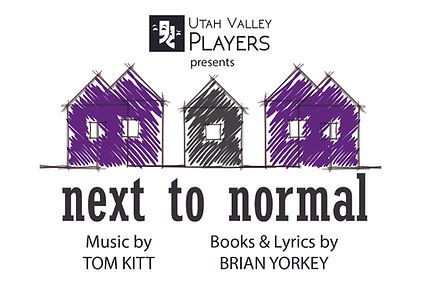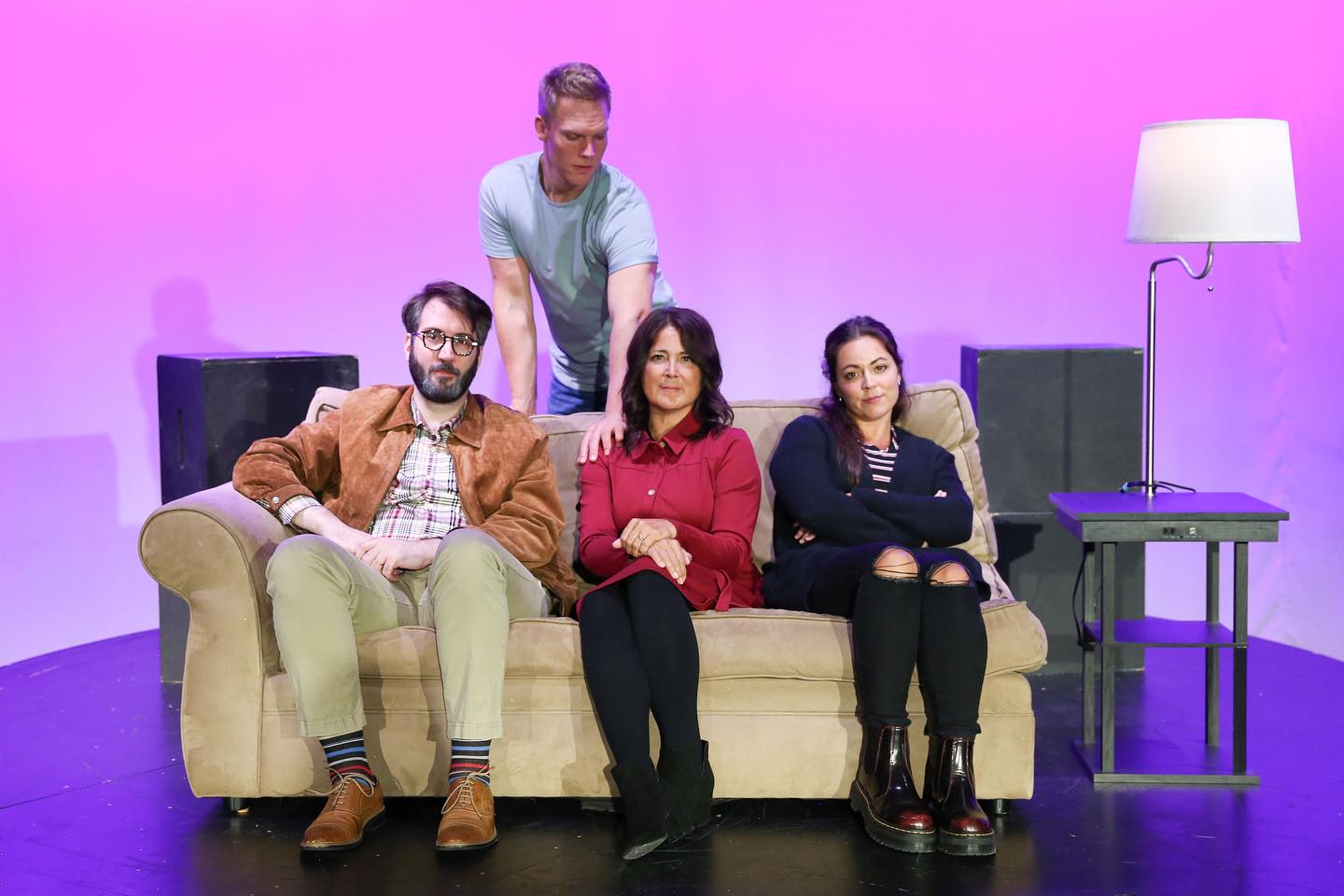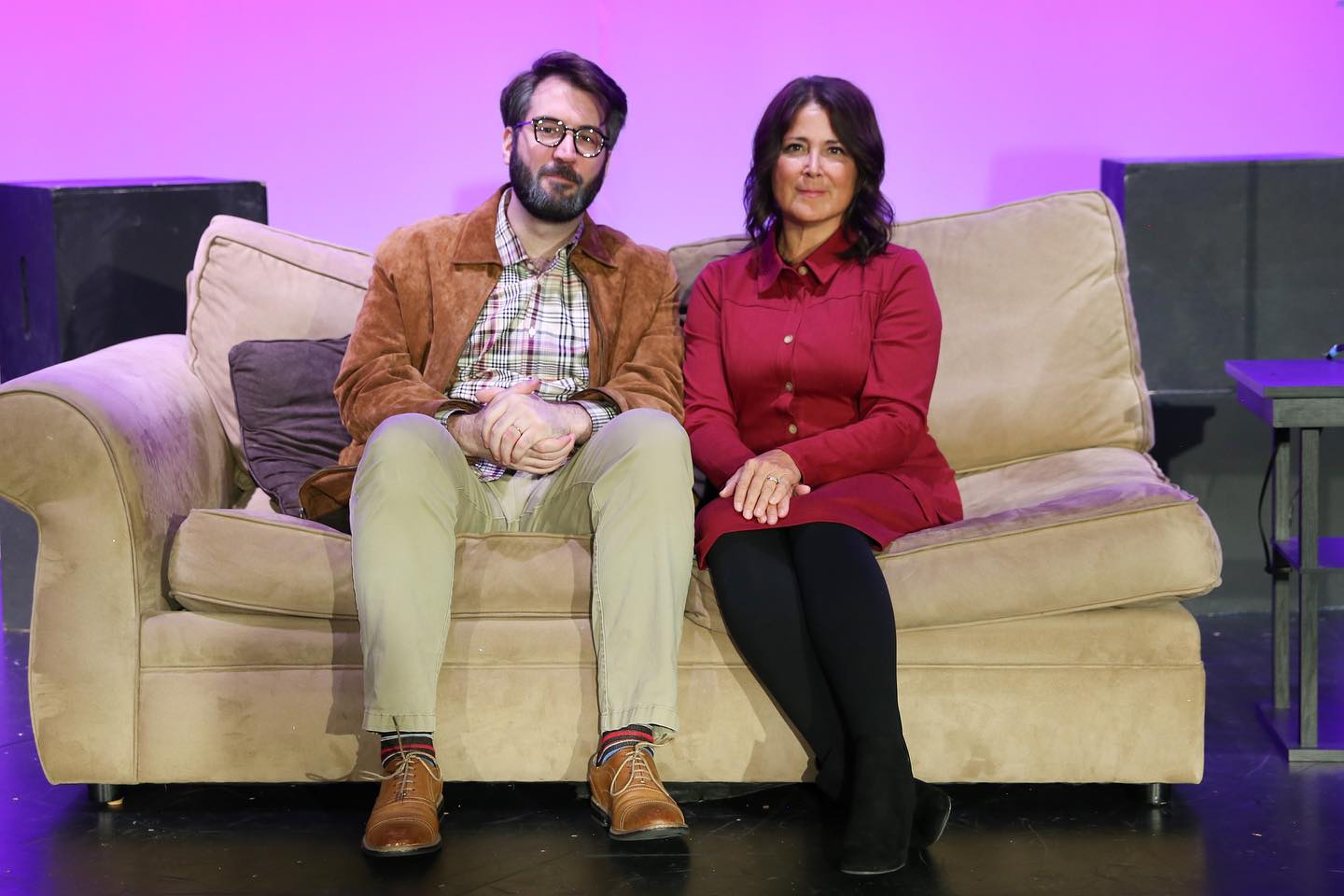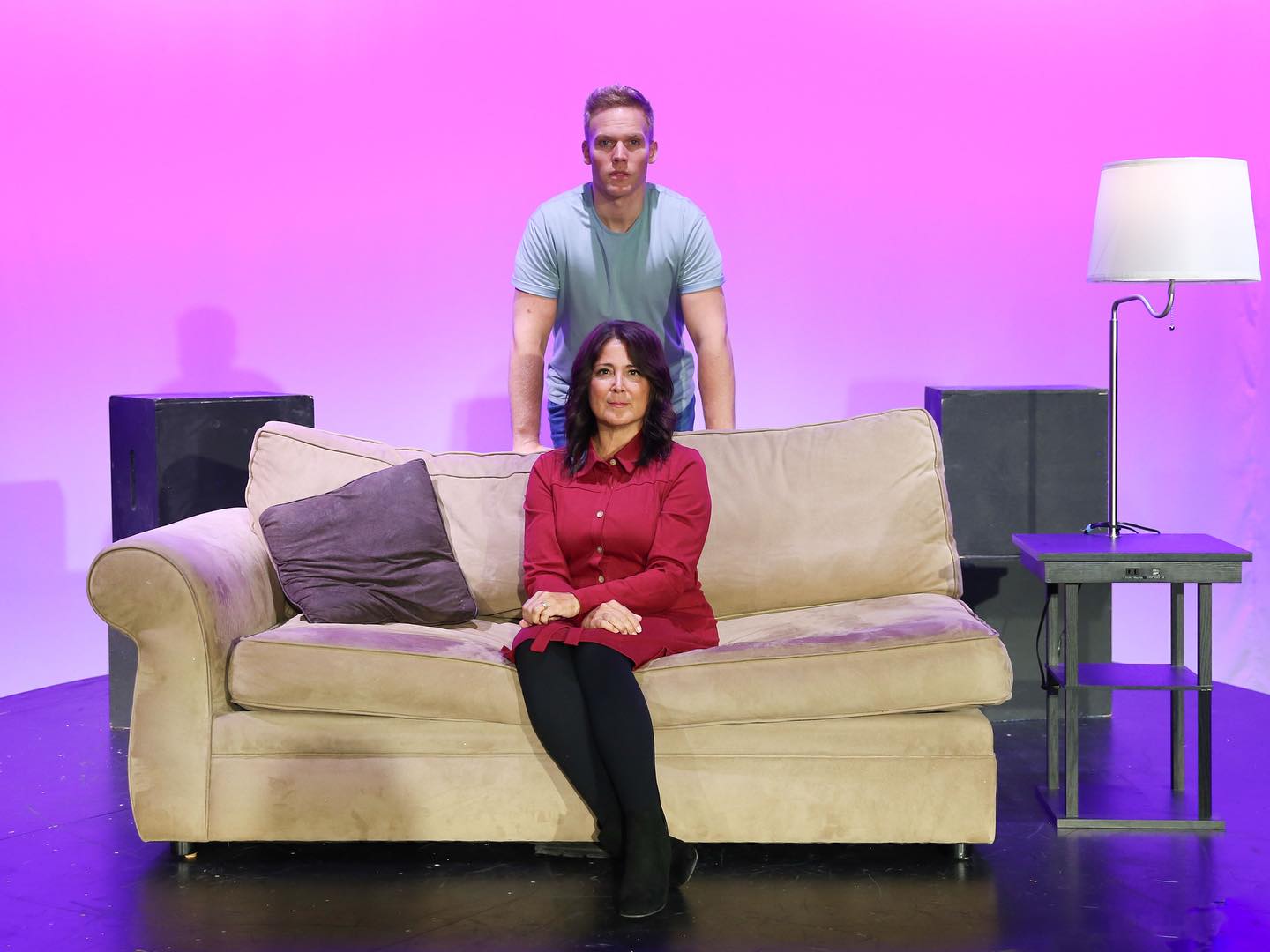PLEASANT GROVE — “Why would you want to remember the things that hurt you?” The question posed by Dan, the father in the 2009 rock musical Next to Normal (with book and lyrics by Brian Yorkey and music by Tom Kitt) is central to the lives of the story’s Goodman family. And it is a question that challenges the family (and some audience members) on a daily basis. Next to Normal is the story of a mother, Diana, who grapples with bipolar disorder and depression and how it impacts her family. The show, which has not been reviewed by UTBA since a strong production from Utah Valley University in 2013, grapples with intense themes such as attempted suicide, drug use, and various struggles with mental health and its treatment. However, the story’s beautiful messages, and the excellent treatment of the show by director Shawnda Moss and the Utah Valley Players, made for a powerful and important production.

The show’s opening number includes Diana (played by Shaunna Thompson), relating, “We’re the perfect, loving family.” Her son (played by R. George Banner) is a model student athlete who is never around, and daughter Natalie (played by Alexa Thompson) is just a sonata away from an early admission to Yale on a music scholarship. The father, Dan (played by Carson Davies), seems to hold things all together, despite Natalie’s angst, her brother’s absence, and Diana’s meltdowns. Through the show, the family’s relationships are strained from underlying and unresolved trauma.
The set has four main downstage playing spaces, as well as a raised platform in the back, with a series of stage blocks set asymmetrically. The downstage wings featured a couch and chair for a doctor’s office to the audience’s left, and the far right usually featured a keyboard at which Natalie could play for recitals, practice time, and so forth. The downstage apron had a table at which the family would gather stage right and a Lawson chair with an end table and lamp stage left. Somehow, these simple elements became so much more than the sum of their parts as the action happened across the stage all the time. I loved having my head on a swivel to follow the action of Diana getting treatment while her daughter is falling in love. Through consistent commitment to character and meaningful stage business, this cast of six felt like a cast so much larger.

Moss’s direction was exceptional. There are parallels between the romantic relationships of the parents, Dan and Diana, and their daughter Natalie’s relationship with her boyfriend, Henry (played by Ryan Ward) are written to be clear, but the staging accentuated this. Synchronized but off-set gestures from Henry and Dan with like responses from Diana and Natalie underlined Natalie’s fears that she will end up like her mother. As the play begins each character seems to be in their own little world and aloof from the others. However, as the play continues, these moments of harmony demonstrate a family that, despite its struggles, is fighting to survive darkness that threatens to swallow them whole.
Diana is such a challenging part to play. Not only are powerful rock musical lyrics required, but the actress must be believably distressed to the point of being suicidal while carrying an air of aloof whimsy at those fleeting moments of levity in the show. Shaunna Thompson did exactly that. Her performance moved quickly out of opening night jitters and into a wrenching portrayal that showed her range as a performer. One moment she was casually telling Natalie that she was off to go have sex, and moments later she would foxtrot around her home — a dance of death that held strong dramatic tension. Shaunna Thompson also navigates directing the son (whose name is revealed in a key story moment) to be ever present, while remaining absent.

Alexa Thompson was a fairly haughty Natalie through the play’s first act. For someone so studious, it felt at times like she was flippant (rather than fastidious) about her pursuits and sarcastic (rather than scrupulous) in her desire to leave home. It was an acting choice that I warmed up to over time, especially when Natalie’s harsh realities come to the forefront of the play’s arc. That is when Natalie’s need to mask her pain becomes impossible for her to do as an angsty teen. Those moments Alexa Thompson was somber and serious were a powerful catalyst that fueled and underscored her performance as Natalie for this production. Add in her powerful vocals that gave me goosebumps during the number “Superboy” and “The Invisible Girl,” and it was a stellar performance. All of the actors in this production were solid or better, and it was nice to see the strong casting for a show so seldom seen in Utah County.
I appreciated that the drug use and intoxication, while present, were not heavy handed or clunky. Like laughing on stage, the effects of substance use and abuse on stage can be hard to act. I felt that these actors picked their moments well and did not indicate or overact the way that their sobriety was compromised. Similarly, the language from the original production which includes many F-bombs was toned down, though not entirely scrapped. As Mark Twain is known to have said, “There ought to be a room in every house to swear. It’s dangerous to have to repress an emotion like that.”

I appreciated so much of this production of Next to Normal. There are those who take umbrage with the show, as they feel the play indicates that mental health challenges cannot be helped by family. I feel that Moss and the cast and creative team do a nice job flipping this message. Most notably, this is seen in the costume choices by Lisa Elzey at the end of the play. While deeply individual and disparate in the beginning of the play, the play’s final scenes show every character wearing some version of a red top and jeans. This unification seems to indicate the hope that the production needs to be a tearjerker.
In the Savage home, we will occasionally have a sad movie night. We’ll pick a movie like Bridge to Terabithia, Hotel Rwanda, or something else that we know will cue the sprinkler systems of our souls. It is not always pleasant, but the ability to feel and to talk about these kinds of emotions is important. The Utah Valley Players production of Next to Normal, is part of a series of plays presented by Utah Valley Mental Health, and it follows in a tradition (dating back over two millennia) or using the power of art to create catharsis for its audience. Next to Normal is not a perfect show, and it lacks sparkle and dazzle. But it is a powerful story beautifully told, and I am telling everyone to go see it, in part because of the tears I shed watching it. “Why would you want to remember the things that hurt you?” I don’t have an answer, but asking the question is a good place to start.
[box]The Utah Valley Players production of Next to Normal plays Wednesdays through Saturdays at 8 PM and Fridays and Saturdays at 4 PM through August 19 on the The Cook Center for Human Connection Stage at Liahona Prepatory Academy (2464 West 450 South, Pleasant Grove). Tickets are $15. For more information, visit utahvalleyplayers.com.[/box]
